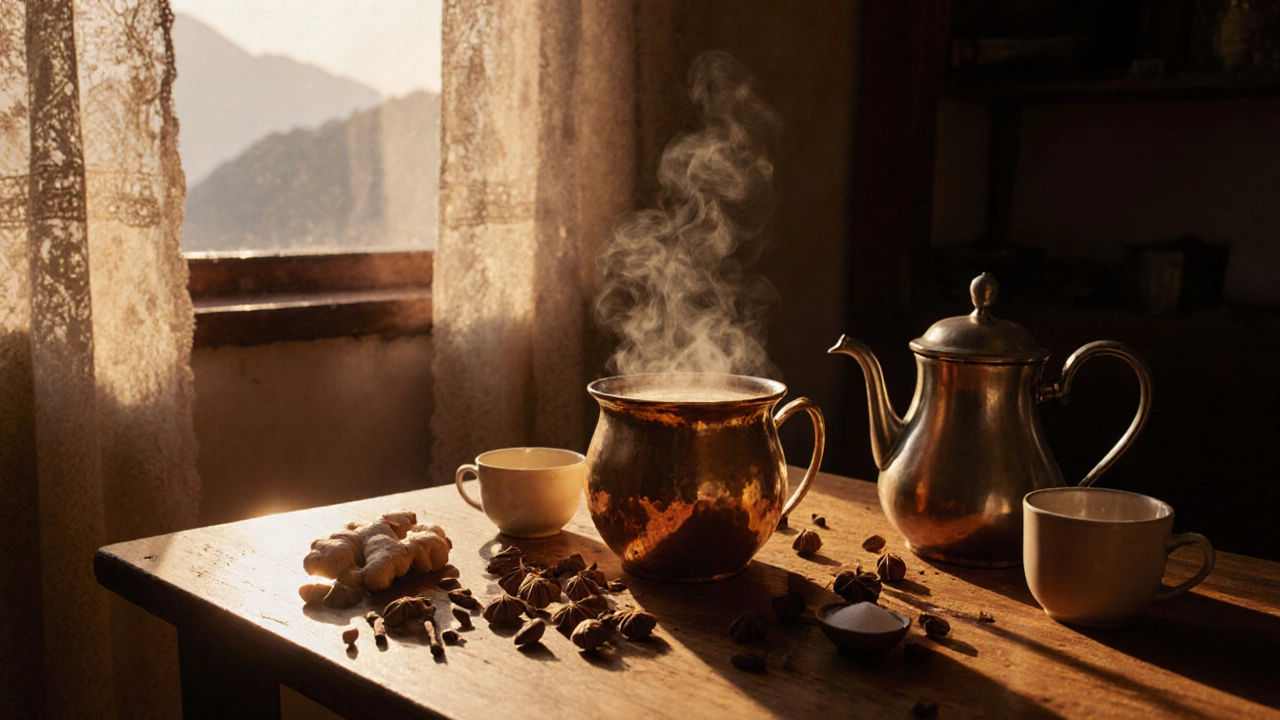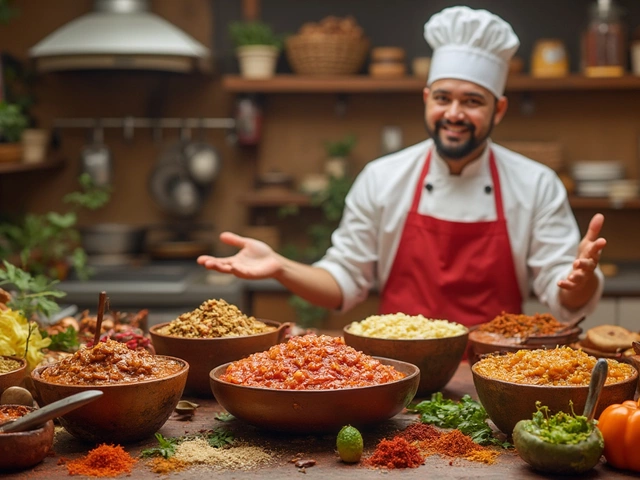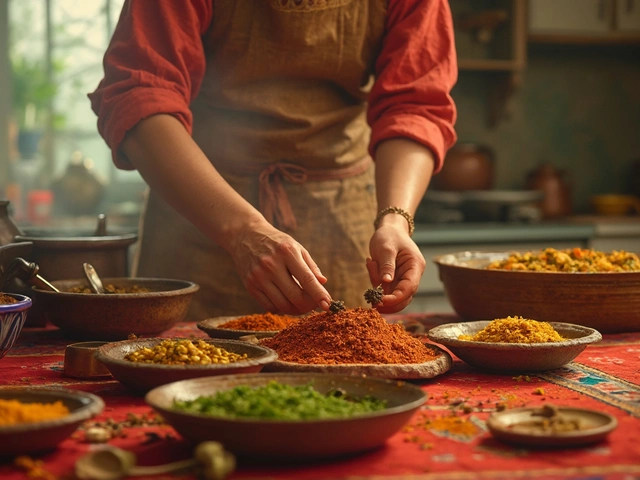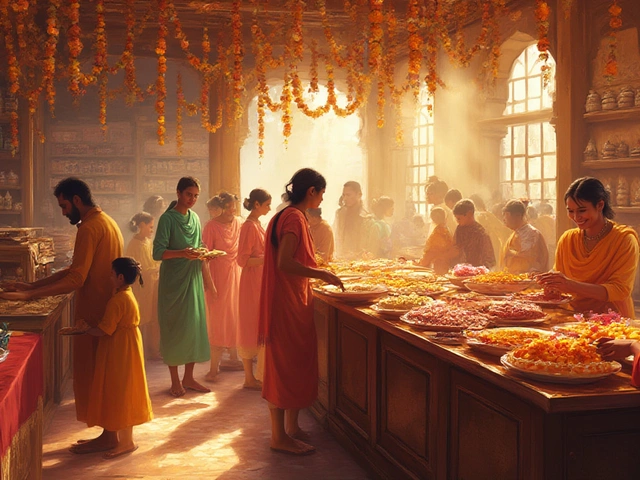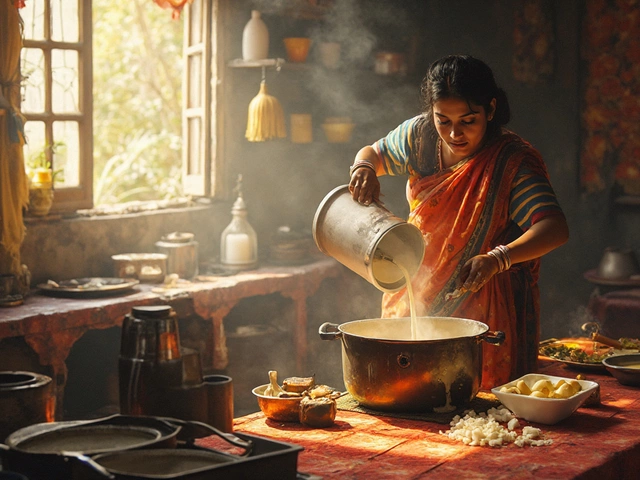Indian Breakfast Drink Selector
Key Takeaways
- India offers a wide range of breakfast drinks, from hot teas to cool fermented milks.
- Regional preferences shape which beverages are served in the morning.
- Many drinks provide digestive benefits and can be made at home with just a few ingredients.
- Simple recipes are included for chai, masala tea, lassi, buttermilk, and more.
- Use the comparison table to pick the right drink for your taste, climate, and health goals.
When you think about Indian breakfast, you might picture sizzling dosa or steaming idli, but the Indian breakfast drinks are just as iconic. Across the sub‑continent, families start the day with a sip of something hot, tangy, or sweet, each tailored to local climate, culture, and cuisine. This guide walks you through the most common morning beverages, explains where they belong, and shows you how to whip them up at home.
Indian breakfast drinks are a diverse collection of hot teas, fermented milks, fresh juices, and herbal infusions served with the first meal of the day across India. While the choices differ from the north to the south, a few names appear everywhere, and each carries its own story.
Regional Overview: How Geography Shapes the Morning Sip
India’s vast size means climate plays a huge role. In chilly Himalayan towns, a steaming cup of spiced tea helps warm the body. Down south, where humidity climbs, a cool glass of buttermilk or fresh coconut water offers instant relief. The western desert states favor tangy fruit drinks like aampanna, while the eastern plains love sweet guava or mango juice.
Below is a quick map of what you’ll typically find:
- North & Central India: Masala chai, plain tea, lassi, and warm milk.
- South India: Filter coffee, butter‑milk (chaach), tender coconut water, and jaggery‑sweetened ginger tea.
- West India (Gujarat, Maharashtra, Rajasthan): Aampanna, jal‑jeera (spiced lemonade), and buttermilk with cumin.
- East India (Bengal, Odisha): Sweetened tea (cha), fresh sugarcane juice, and rice‑based drinks like nolengurer mishti.
Classic Hot Drinks
Nothing says "breakfast" in many Indian homes like a hot brew. The two pillars are tea and coffee, each prepared with distinct regional flair.
Chai is a milk‑based black‑tea flavored with cardamom, ginger, cloves, and often a hint of cinnamon is the most ubiquitous. Families steep strong black tea leaves in boiling water, add milk, sugar, and a spice blend called "masala". The result is a creamy, aromatic cup that pairs perfectly with any savory breakfast.
Masala tea is a variant of chai that emphasizes a richer spice mixture, typically using more ginger, cinnamon, and black pepper is popular in the Himalayan belt where the extra heat helps combat cold mornings. The spice ratio often follows a 2:1:1:1 pattern (cardamom: ginger: cinnamon: cloves).
South India’s answer to the morning brew is filter coffee a strong, dark espresso‑like coffee brewed through a metal filter, mixed with hot milk and sugar. The coffee beans are roasted with chicory, giving a distinct earthy bite. The drink is usually served in a stainless‑steel tumbler and saucer, allowing the froth to settle before sipping.
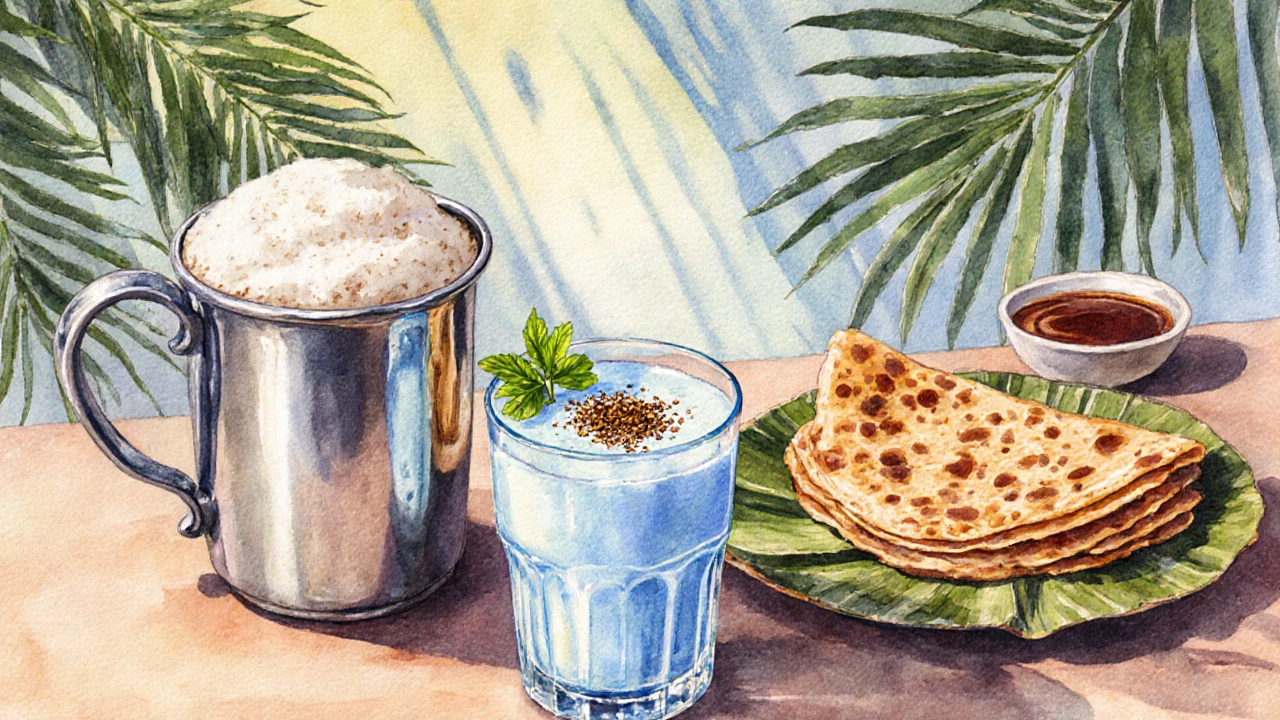
Traditional Fermented Drinks
Fermented dairy beverages are beloved for their cooling effect and digestive benefits.
Lassi is a yogurt‑based drink mixed with water, salt or sugar, and flavored with fruit, spices, or herbs comes in two main styles: sweet, often blended with mango or rose water, and salty, seasoned with roasted cumin, black pepper, and coriander. A typical serving contains 200ml of plain yogurt, 100ml of water, and a pinch of salt or a tablespoon of sugar.
buttermilk also called chaach, is the liquid left after churning butter from cream, seasoned with spices and herbs is thinner than lassi. A classic north‑Indian version mixes 250ml of low‑fat curd with water, adds a pinch of salt, roasted cumin powder, chopped cilantro, and a dash of green chili. Served chilled, it’s the go‑to drink on hot summer mornings.
Refreshing Fruit & Herbal Drinks
When the sun rises over the tropical coasts, a glass of something cool is the perfect complement.
Aampanna is a raw mango drink seasoned with cumin, black salt, and a hint of mint, served ice‑cold is a staple in Rajasthan and Gujarat during the scorching summer. The raw mango provides a tangy base, while the spices aid digestion.
Fresh fruit juices-especially mango, orange, and sugarcane-are sold by street vendors across the country. They are usually unfiltered, preserving fiber and natural pulp.
In coastal Kerala and Tamil Nadu, coconut water is the clear liquid inside young green coconuts, rich in electrolytes and naturally sweet is offered straight from the husk. It hydrates instantly and is often enjoyed with a squeeze of lime.
Herbal teas such as tulsi tea is an infusion of holy basil leaves, ginger, and sometimes honey, known for its adaptogenic properties are popular in the north during cooler months. The herb is praised for its immune‑boosting qualities.
Health Benefits and Choosing the Right Drink
Each beverage offers a unique set of nutrients:
- Chai & Masala tea: Antioxidants from tea polyphenols; spices add anti‑inflammatory properties.
- Filter coffee: Caffeine kick and a small amount of chlorogenic acids (good for metabolism).
- Lassi & Buttermilk: Probiotics for gut health, calcium, and protein; the spices aid digestion.
- Aampanna & Fresh juices: VitaminC, potassium, and natural sugars for quick energy.
- Coconut water: Electrolytes (potassium, magnesium) for hydration.
- Tulsi tea: Adaptogens that help the body cope with stress.
When picking a drink, consider your climate, dietary restrictions, and how the flavor fits your breakfast. Hot teas are comforting in cooler weather, while chilled lassi or coconut water work best in heat.
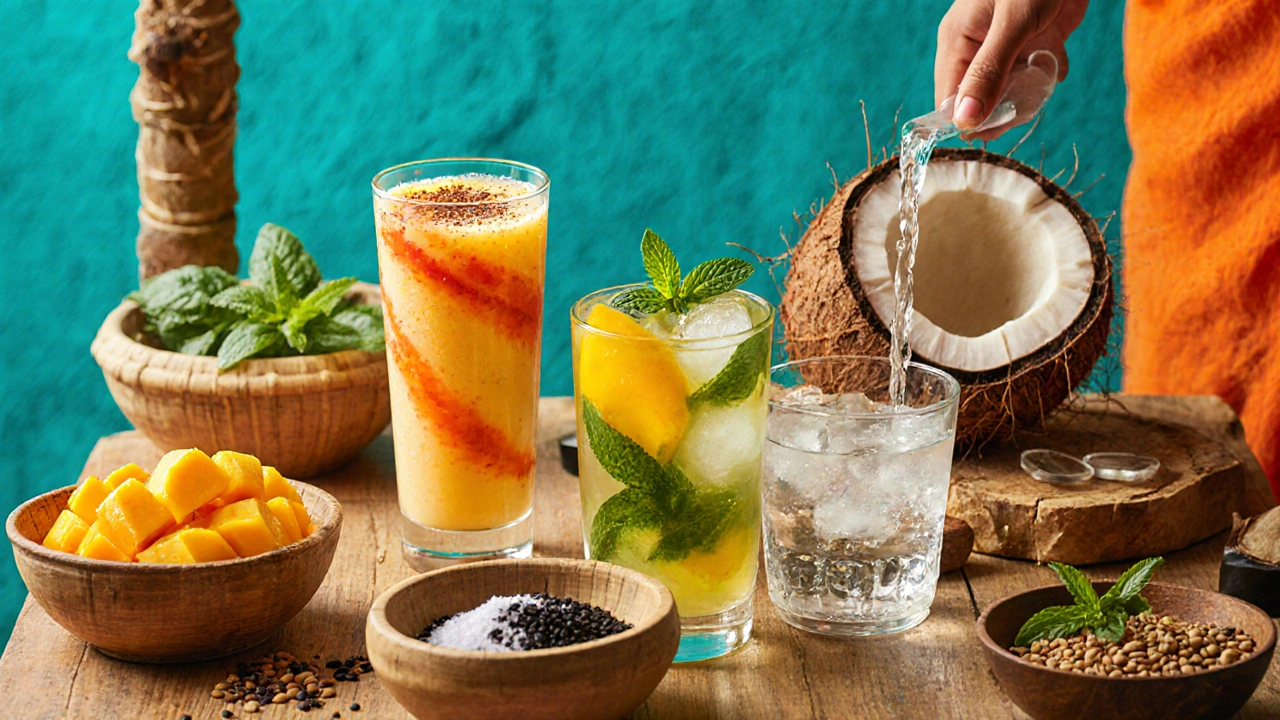
Simple Homemade Recipes
- Basic Masala Chai (serves 2)
- Ingredients: 2tsp black tea leaves, 1cup water, 1cup milk, 2cardamom pods, 1inch ginger, 2cloves, 1tsp sugar.
- Method: Crush cardamom and ginger. Bring water, spices, and tea to a boil for 2minutes. Add milk and sugar, simmer 3minutes. Strain and serve hot.
- South Indian Filter Coffee (serves 1)
- Ingredients: 1tbsp coffee powder (with chicory), 150ml hot water, 150ml heated milk, 1tsp sugar.
- Method: Place coffee powder in the upper compartment of a metal filter, pour hot water, let drip for 5minutes. Mix the decoction with hot milk and sugar, froth using a dabarah (traditional shaker) if available.
- Salted Buttermilk (Chaach) (serves 2)
- Ingredients: 250ml plain curd, 200ml water, ½tsp salt, ½tsp roasted cumin powder, pinch of black pepper, 1tbsp chopped cilantro, optional mint leaves.
- Method: Whisk curd and water until smooth. Stir in salt, cumin, pepper, and herbs. Chill for 10minutes before serving.
- Mango Lassi (serves 2)
- Ingredients: 1cup plain yogurt, ½cup ripe mango puree, ¼cup cold milk, 2tbsp honey, pinch of cardamom powder.
- Method: Blend all ingredients until silky. Adjust sweetness with honey. Serve cold.
- Aampanna (serves 4)
- Ingredients: 2raw mangoes (peeled and diced), 1liter water, 1tsp roasted cumin powder, ½tsp black salt, 2tbsp sugar, handful of mint leaves.
- Method: Boil mango pieces until soft, blend with water, strain. Add spices, sugar, and mint. Chill and serve over ice.
Quick Comparison of Popular Indian Breakfast Drinks
| Drink | Primary Ingredients | Typical Temperature | Regional Popularity | Health Highlights |
|---|---|---|---|---|
| Chai (Masala) | Black tea, milk, sugar, cardamom, ginger, cloves | Hot | North & Central | Antioxidants, digestion‑aiding spices |
| Filter Coffee | Roasted coffee‑chicory blend, milk, sugar | Hot | South (Karnataka, Tamil Nadu) | Caffeine boost, chlorogenic acids |
| Lassi (Sweet) | Yogurt, water, sugar, fruit (optional) | Cold | All regions, especially Punjab | Probiotics, calcium, protein |
| Buttermilk (Chaach) | Curd, water, salt, cumin, herbs | Cold | North, West | Electrolytes, digestive aid |
| Aampanna | Raw mango, sugar, cumin, black salt, mint | Cold | Rajasthan, Gujarat | VitaminC, cooling effect |
| Coconut Water | Young coconut liquid | Cold | South Coast (Kerala, Tamil Nadu) | Electrolytes, natural hydration |
Frequently Asked Questions
What is the difference between lassi and buttermilk?
Lassi is a yogurt‑based drink that can be sweet or salted and often includes fruit or spices for flavor. Buttermilk (chaach) is thinner, made from curd mixed with water, and is usually seasoned with salt, cumin, and herbs. Both aid digestion, but lassi provides more protein and sweetness, while buttermilk is more refreshing in hot weather.
Can I make masala chai without any dairy?
Absolutely. Substitute cow’s milk with almond, soy, or oat milk. The spices remain the same, and the flavor profile stays authentic. Just heat the plant‑based milk with the tea and spices as you would with regular milk.
Is coconut water safe for infants?
Coconut water is naturally low in sugar and rich in electrolytes, but pediatricians recommend waiting until a baby is at least 6months old before offering it, and only in small amounts. Always check with a healthcare professional for individual guidance.
How long can homemade buttermilk be stored?
Keep it refrigerated in a clean, airtight container. It stays fresh for 2-3days. Give it a quick stir before serving; if it develops an off‑smell, discard it.
Which breakfast drink is best for weight loss?
Buttermilk and unsweetened tulsi tea are low‑calorie options that also promote digestion. Avoid adding extra sugar to lassi or fruit juices if you’re watching calories. Pair the drink with a protein‑rich breakfast for sustained satiety.
Now you’ve got the full picture: from the steaming cup of masala chai in the mountains to the cool glass of coconut water on the beach. Pick a drink that matches your taste, climate, and health goals, and you’ll start every Indian morning the right way.
- Poplular Tags
- Indian breakfast drinks
- chai
- lassi
- masala tea
- buttermilk





